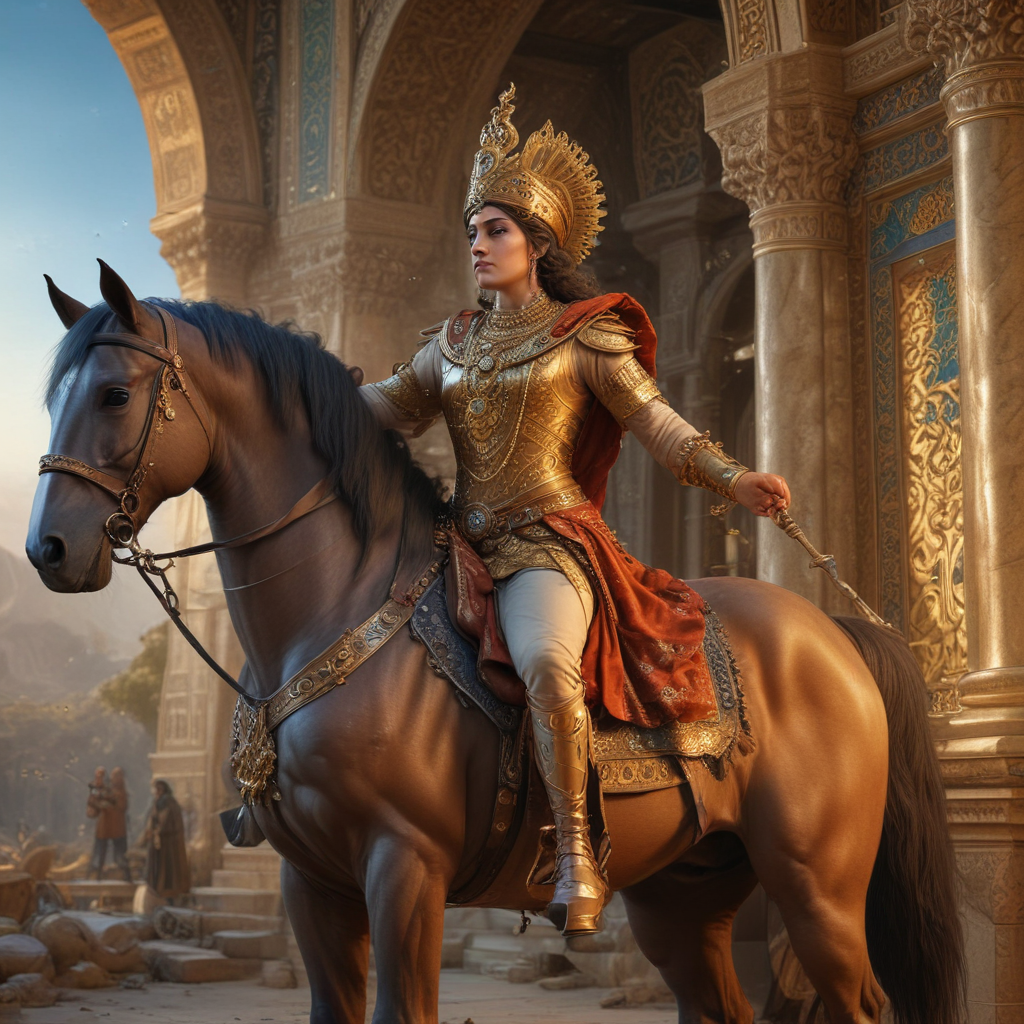The Myth of the Reluctant Hero: Morality in Unlikely Champions
Introduction
The reluctant hero archetype is a fascinating character model that often embodies the struggle between personal desire and moral obligation. Unlike traditional heroes who leap into action with enthusiasm and confidence, reluctant heroes are typically characterized by their hesitance to accept the challenges that come their way. This article explores the thesis that the journey of reluctant heroes is not just about adventure, but also deeply intertwined with moral complexity and character development.
Moreover, unlikely champions play a crucial role in storytelling, as they often reflect the inner conflicts and moral dilemmas faced by individuals in real life. Their journeys resonate with audiences, illustrating that heroism can emerge from vulnerability and self-doubt, rather than from sheer strength or unwavering conviction.
The Evolution of the Heroic Archetype
Historically, heroism in literature and mythology has been defined by figures such as Achilles, Beowulf, and Odysseus—characters who embody courage, strength, and unwavering moral clarity. However, as societal values have evolved, so too has the conception of what it means to be a hero. The transition from these traditional heroes to reluctant heroes in modern storytelling reflects a shift towards embracing complexity and moral ambiguity.
- Ancient Heroes: Figures like Hercules and Gilgamesh are celebrated for their heroic deeds and bravery.
- Modern Reluctant Heroes: Characters such as Frodo Baggins and Katniss Everdeen represent a more nuanced approach to heroism.
Across various cultures, reluctant heroes have emerged, showcasing the universal appeal of characters who grapple with their fears and responsibilities. From the Japanese tale of Momotaro to the American narrative of Spiderman, these figures reflect the evolving understanding of what it means to be a champion.
Characteristics of the Reluctant Hero
Reluctant heroes share several common traits that distinguish them from their traditional counterparts:
- Vulnerability: They often exhibit flaws and insecurities, making them relatable to audiences.
- Moral Ambiguity: Their actions may not always align with conventional notions of right and wrong.
- Self-Doubt: They frequently question their abilities and worthiness to take on the hero’s mantle.
The psychological motivations behind their reluctance often stem from past traumas or a desire to avoid the burdens of leadership. For instance, Frodo Baggins in J.R.R. Tolkien’s “The Lord of the Rings” is thrust into a monumental quest against his will, while Katniss Everdeen in “The Hunger Games” is driven by a desire to protect her loved ones rather than seeking fame or glory.
Moral Dilemmas Faced by Unlikely Champions
Reluctant heroes are frequently confronted with ethical conflicts that challenge their values and beliefs. These moral dilemmas are pivotal in shaping their character arcs and often serve as crucial turning points in their narratives.
For example:
- Frodo’s burden: He must decide whether to destroy the One Ring, risking his own life and the lives of those around him.
- Katniss’s choices: She grapples with the implications of becoming a symbol of rebellion and the impact of her decisions on her friends and family.
These dilemmas not only advance the plot but also deepen the audience’s understanding of the characters’ struggles, making their journeys compelling and relatable.
The Role of Supporting Characters in the Reluctant Hero’s Journey
The journey of the reluctant hero is often influenced by a cast of supporting characters, including mentors, sidekicks, and antagonists. These relationships play a critical role in shaping the hero’s path and moral decisions.
For instance:
- Samwise Gamgee and Frodo: Sam serves as a loyal companion, providing emotional support and encouragement, which helps Frodo face his fears.
- Haymitch Abernathy and Katniss: Haymitch’s tough love and guidance push Katniss to confront her role in the rebellion.
These pairings illustrate how the dynamics of relationships can significantly influence the reluctant hero’s development and moral compass.
Cultural Reflections: Why We Love the Reluctant Hero
The narratives surrounding reluctant heroes often reflect societal values and beliefs. In a world that frequently challenges rigid definitions of morality, the appeal of flawed characters resonates deeply with modern audiences.
- Complexity: Audiences appreciate characters who are not perfect and who struggle with moral ambiguity.
- Relatability: The internal conflicts faced by reluctant heroes mirror the struggles of everyday individuals.
As such, reluctant heroes serve as a mirror to contemporary society, showcasing the complexities of human nature and the courage required to confront personal and societal challenges.
The Reluctant Hero as a Symbol of Resistance
Beyond personal struggles, reluctant heroes often symbolize resistance against oppressive systems and norms. Their journeys can reflect broader social and political themes, making them powerful figures in narratives of change.
Examples include:
- Frodo’s fight against Sauron: Represents the struggle against tyranny and the corrupting influence of power.
- Katniss’s rebellion: Embodies the fight against a repressive regime, inspiring hope and activism.
These characters not only entertain but also provoke thought about justice, equity, and the power of individual agency in the face of adversity.
The Transformation of the Reluctant Hero
The journey of a reluctant hero often involves significant transformation. Their growth typically follows several stages:
- Reluctance: Initial hesitation to accept the hero role.
- Confrontation: Facing fears and moral dilemmas that challenge their beliefs.
- Acceptance: Embracing the hero role and responsibilities that come with it.
This emotional and moral evolution enriches the narrative, allowing audiences to witness a profound transformation that highlights the potential for growth and change.
Critiques of the Reluctant Hero Archetype
While the reluctant hero archetype offers compelling narratives, it is not without its critiques. Some potential pitfalls include:
- Clichés: Overuse of the reluctant hero trope can lead to predictable storytelling.
- Underdeveloped characters: Some narratives fail to provide depth, resulting in one-dimensional portrayals.
Despite these critiques, the reluctant hero remains a powerful symbol of humanity’s struggle with moral complexities, reminding us that heroism can arise from the most unexpected places.




